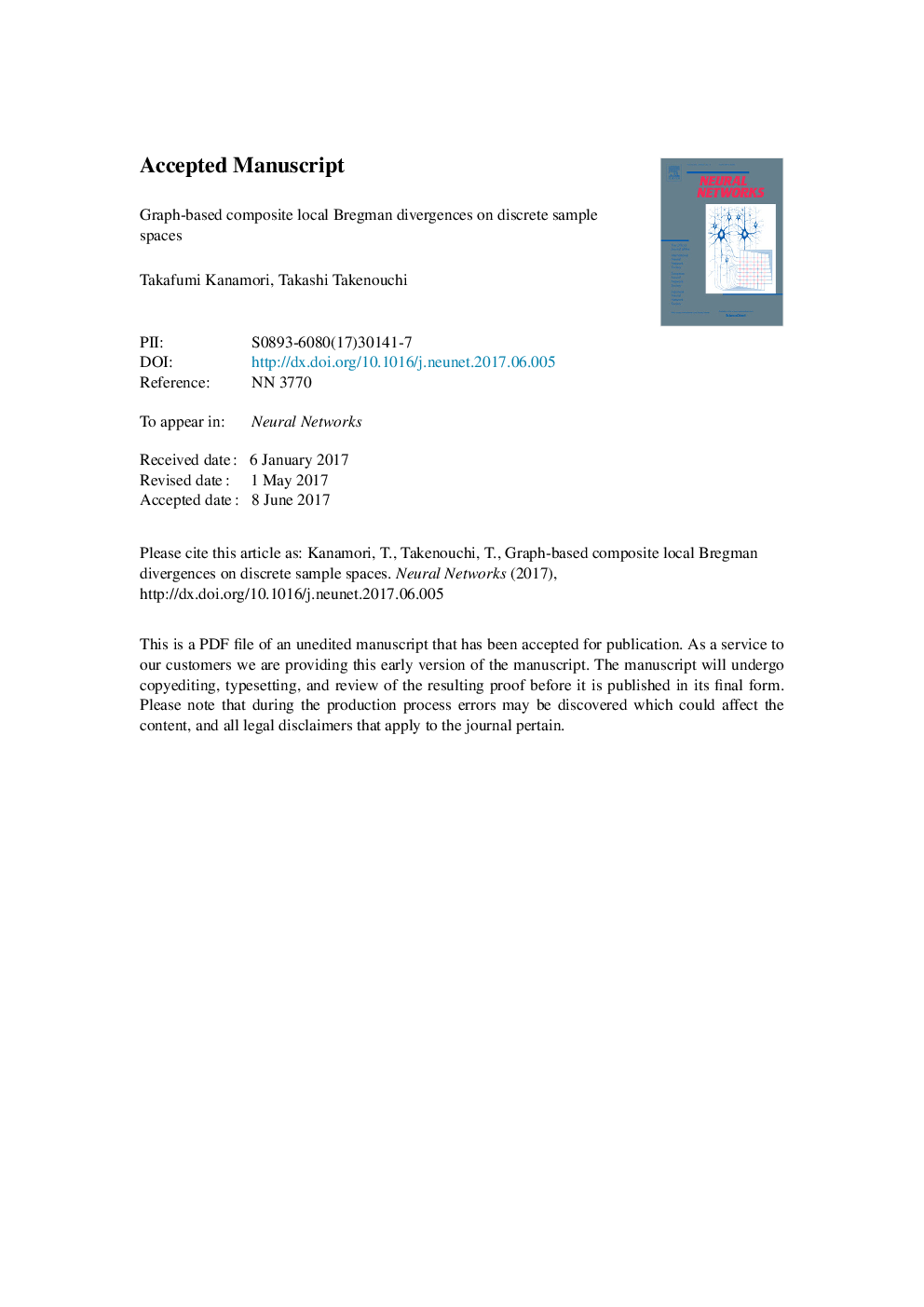| Article ID | Journal | Published Year | Pages | File Type |
|---|---|---|---|---|
| 4946594 | Neural Networks | 2017 | 33 Pages |
Abstract
This paper develops a general framework of statistical inference on discrete sample spaces, on which a neighborhood system is defined by an undirected graph. The scoring rule is a measure of the goodness of fit for the model to observed samples, and we employ its localized version, local scoring rules, which does not require the normalization constant. We show that the local scoring rule is closely related to a discrepancy measure called composite local Bregman divergence. Then, we investigate the statistical consistency of local scoring rules in terms of the graphical structure of the sample space. Moreover, we propose a robust and computationally efficient estimator based on our framework. In numerical experiments, we investigate the relation between the neighborhood system and estimation accuracy. Also, we numerically evaluate the robustness of localized estimators.
Related Topics
Physical Sciences and Engineering
Computer Science
Artificial Intelligence
Authors
Takafumi Kanamori, Takashi Takenouchi,
